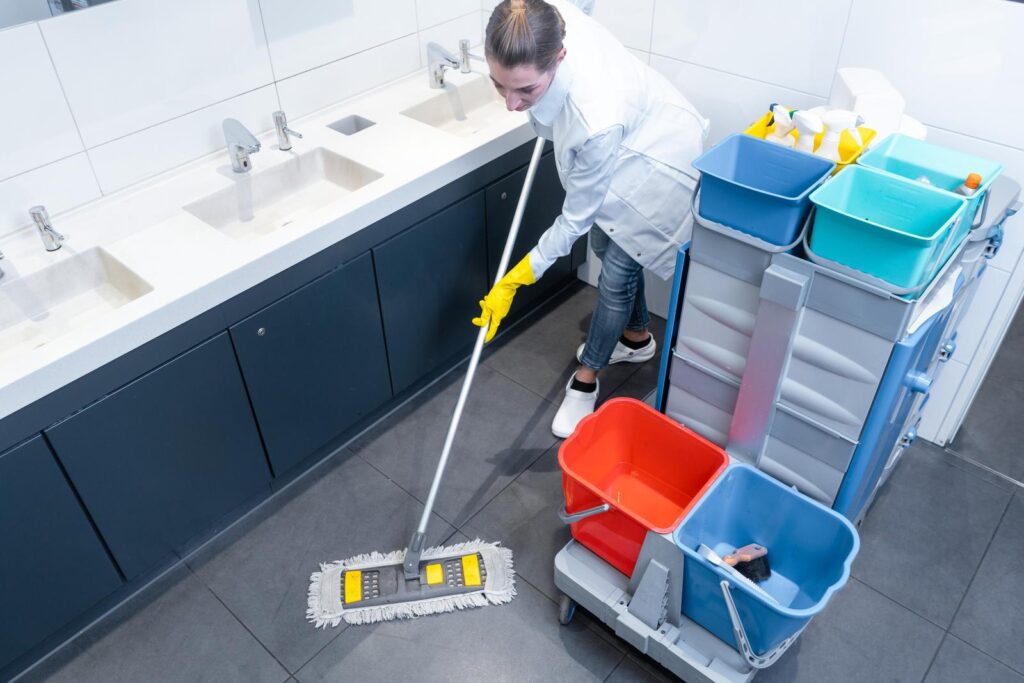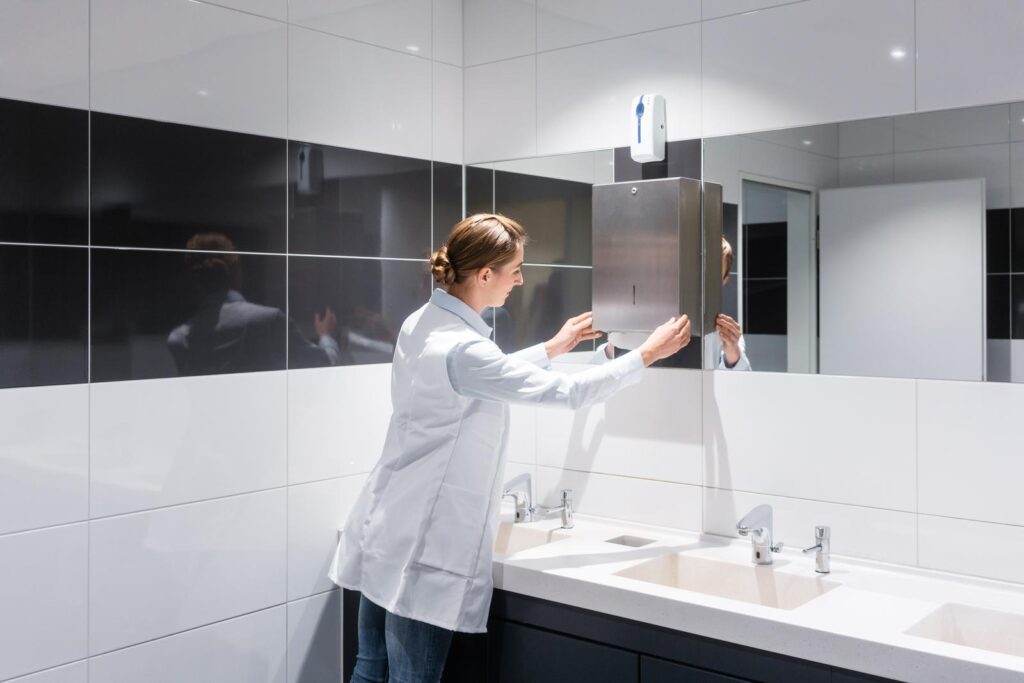The cleaning industry is rapidly evolving, driven by technological advancements revolutionizing business operations. From robotic vacuums…

Commercial vs. Residential Cleaning: Maximize Revenue
Do Cleaners Make More Income from Commercial or Residential Properties?
Established cleaning contractor companies have likely faced challenges in identifying the best target audience in their local region. For example, they might have initially focused on residential homes, only to find greater revenue potential in commercial office cleaning, or vice versa. Determining the ideal clientele typically involves a process of trial and error, and requires adaptability.
In the cleaning industry, one size does not fit all, and even well-established companies might be missing out on significant revenue by not targeting the right clientele. Factors such as an under-served or over-saturated commercial market or untapped niches like wedding venues can impact a company’s success. This blog post delves into how new and established cleaning businesses can pinpoint the most suitable clientele for long-term revenue, repeat business, reduced competition, and customer loyalty while remaining adaptable to market dynamics.
Evaluating Commercial vs. Residential Cleaning
When deciding whether to focus on commercial or residential cleaning, weighing the pros and cons of each market is crucial.
Commercial cleaning often involves larger spaces, specialized equipment, and higher overall revenue. However, it can also mean increased competition, more demanding clients, and higher upfront investment in equipment and training.
Residential cleaning may offer a more consistent client base and lower start-up costs. But, it can involve lower profit margins, increased driving time between clients, and potentially more marketing efforts to attract and retain customers.
Identifying Profitable Niches in the Cleaning Industry
Rather than solely focusing on commercial or residential properties, cleaning companies should consider identifying profitable niches within each market. Some examples include:
- Wedding venues: Cleaning companies specializing in wedding venues can benefit from the growing wedding industry, charging premium rates for specialized cleaning services and enjoying steady events.
- Medical facilities: Cleaning medical facilities requires specialized knowledge and skills, but it can be a lucrative market due to the high demand for cleanliness and hygiene.
- Schools and universities: Educational institutions often require daily cleaning services, which can provide a stable source of income for cleaning companies.
- Retail spaces: Retail businesses often have strict cleaning requirements to maintain their appearance and reputation. They may require more frequent cleaning services, leading to higher revenue.
- Construction site clean-up: This niche can be highly profitable, as construction sites require thorough cleaning before handing over the project to the client.
Assessing the Local Market
Before committing to a specific clientele, it is crucial for cleaning companies to conduct thorough research on their local market. This research may involve:
- Analyzing the competition: Determine the number of competitors in the area, their target markets, and the services they offer. This information can help identify potential gaps in the market and guide the company’s focus.
- Evaluating demand: Assess the demand for cleaning services within the local community. Look for trends, such as a high concentration of commercial properties or a growing residential market.
- Determining pricing: Based on market research, establish a competitive pricing structure that balances profitability with attracting clients.
Building a Loyal Client Base
Regardless of the target market, cleaning companies must work on building a loyal client base. This can be achieved by:
- Providing exceptional service: Consistently delivering high-quality cleaning services is essential to retaining clients and earning their trust.
- Creating a strong brand identity: Develop a professional and recognizable brand that distinguishes the company from competitors.
- Establishing an online presence: Maintain a user-friendly website and active social media accounts to showcase the company’s services, interact with clients, and attract new customers.
- Networking: Attend local business events and join professional organizations to establish connections within the community and generate word-of-mouth referrals.
- Offering exceptional customer service: Prioritize client satisfaction by responding to their needs and concerns, addressing issues promptly, and providing personalized service.
Diversifying Services for Increased Revenue
In addition to identifying the right clientele, cleaning companies can increase their revenue by diversifying their service offerings. By expanding the range of services provided, businesses can cater to a wider audience and increase their income. Some examples of additional services include:
- Carpet cleaning: Many commercial and residential clients require periodic carpet cleaning services, which can be a significant source of additional income.
- Window cleaning: Adding window cleaning services can attract clients needing interior and exterior cleaning solutions.
- Deep cleaning services: Offer specialized deep cleaning services for clients who require occasional intensive cleanings, such as after a renovation or a move.
- Green cleaning: Develop eco-friendly services that cater to environmentally conscious clients, using sustainable products and practices.
- Maintenance services: Consider offering maintenance services, such as minor repairs or painting, to complement cleaning services and provide added value to clients.
Regularly Reevaluating and Adapting Strategies
As the cleaning industry and local market evolve, it is essential for cleaning companies to regularly reevaluate and adapt their strategies to stay competitive and profitable. By monitoring industry trends, customer preferences, and local market changes, cleaning businesses can make informed decisions about their target clientele and service offerings.
Cleaning companies can maximize their long-term revenue, repeat business, and loyalty by carefully identifying their ideal clientele, diversifying their services, building a loyal client base, and adapting to the ever-changing market. Whether targeting commercial or residential properties, the key lies in understanding the unique needs of the local market and making data-driven decisions to achieve sustainable success.







